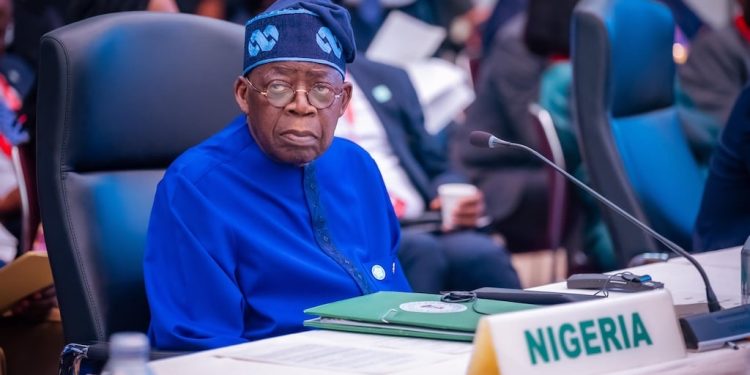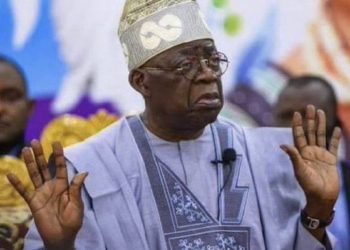In a season saturated with tensions over the untamed Islamic insurgency, killings, banditry, kidnappings, and rumours of a botched coup plot, President Bola Tinubu implemented a dramatic shakeup in the top echelons of the Nigerian military on Friday. Ultimately, the changes must count.
In a terse statement, presidential spokesman Sunday Dare announced that the President had sacked the Chief of Defence Staff, Christopher Musa and replaced him with Olufemi Oluyede, previously the Chief of Army Staff.
Citing the need to further “the efforts of the Federal Government of Nigeria to strengthen the national security architecture,” Tinubu named the helmsmen for the Air Force and the Navy. For the Navy, Idi Abbas comes in for Emmanuel Ogalla as the Chief of Naval Staff.
Waidi Shaibu was appointed the new Chief of Army Staff. Sunday Aneke is the new Chief of Air Staff in place of Hassan Abubakar. Emmanuel Undiandeye retains his post as the Chief of Defence Intelligence.
Unlike his predecessor, Tinubu has again shown that he is not shy of making the big calls. While the late President Muhammadu Buhari retained his Service Chiefs for six of his eight-year tenure, Tinubu has wielded the big stick just after the second anniversary of his administration.
The most eye-catching call was that of Musa.
Tinubu made wholesale changes in the highest echelons of the country’s security in June 2023, shortly after his inauguration in May 2023.
Despite this, the new changes are not sweeping. Oluyede, who replaced Taoreed Lagbaja as the Army Chief in December 2024, takes a step up as CDS; Undiandeye retains his slot. This is a vote of confidence in the two generals by Tinubu.
The Inspector-General of Police and the Director-General of the self-styled DSS, both critical pegs in the security organogram, are still in place.
The expectation is that the new Service Chiefs will enhance security in Nigeria. The country has been under a violent spectre of terrorism, banditry, Fulani herdsmen rapine, separatists’ violence and oil militants’ criminality for more than a decade.
At the weekend, Governor Babagana Zulum of Borno State, alerted Nigerians to the deployment of drones by Boko Haram Islamic fighters in the North-East. At Mafa, Borno State, the jihadists attacked a military base again, killing six soldiers.
The DSS issued an alert a week ago, in which it warned that ISWAP terrorists would soon launch attacks in Kogi and Ondo states.
Under Tinubu’s watch, terror organisations have widened their reach to Sokoto, Niger, and Kwara states. While Lakurawa holds sway in Sokoto, another terror group, Mahmuda, is making inroads into Kwara.
Over three days during the 2023 Christmas period, suspected Fulani marauders slaughtered over 150 residents in three LGAs in Plateau State. The Fulani herders wreak similar havoc in neighbouring Benue State.
Between May 2023 and August 2024, criminals slaughtered 13,346 and abducted 9,207 Nigerians, per Beacon Consulting’s Nigeria Security Report of September 2024.
Although oil militancy is decelerating in the Niger Delta, banditry persists in the North-West, especially in Zamfara, Kebbi and Katsina states. Bandits are reportedly in control of some LGAs in Katsina State.
However, the Nigerian military, with an active force of 230,000 per the Global Firepower Index, is stretched thin. Apart from fighting the jihadists, oil militants, bandits and separatists, troops are involved in internal security operations across the 36 states and the FCT.
With a personnel count of 370,000, and two-thirds guarding VIPs, the police are shorthanded, fuelling a nationwide crime spree.
Undoubtedly, the new security chiefs must introduce effective changes. They should confront the Boko Haram insurgency with new strategies and deploy technology to counter the insurgents’ use of drone technology.
The President should breathe new life into the police by collaborating with the federating units to establish state police. This will allow the police to effectively concentrate on internal security, freeing up the military to tackle banditry and Islamic terrorism with purpose.
Tinubu should put N4.91 trillion defence allocation in the 2025 budget to optimal use by releasing the funds.
















































